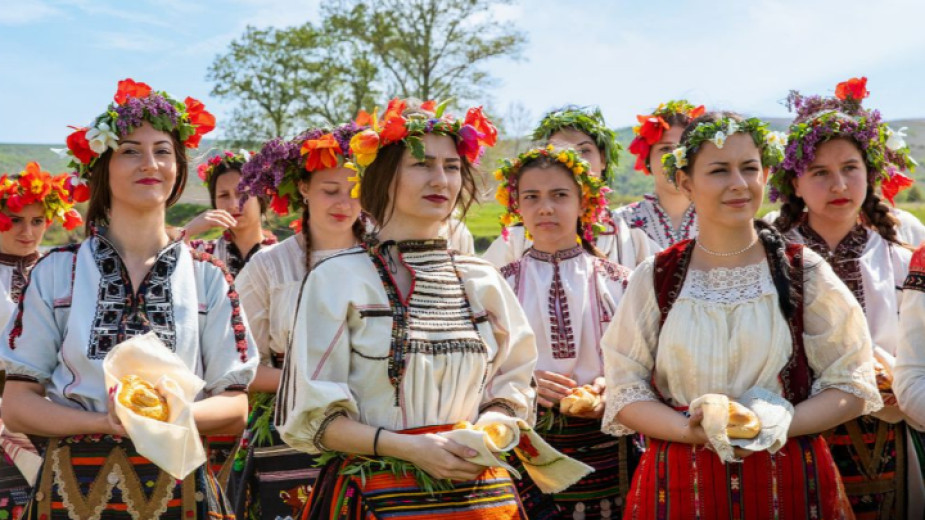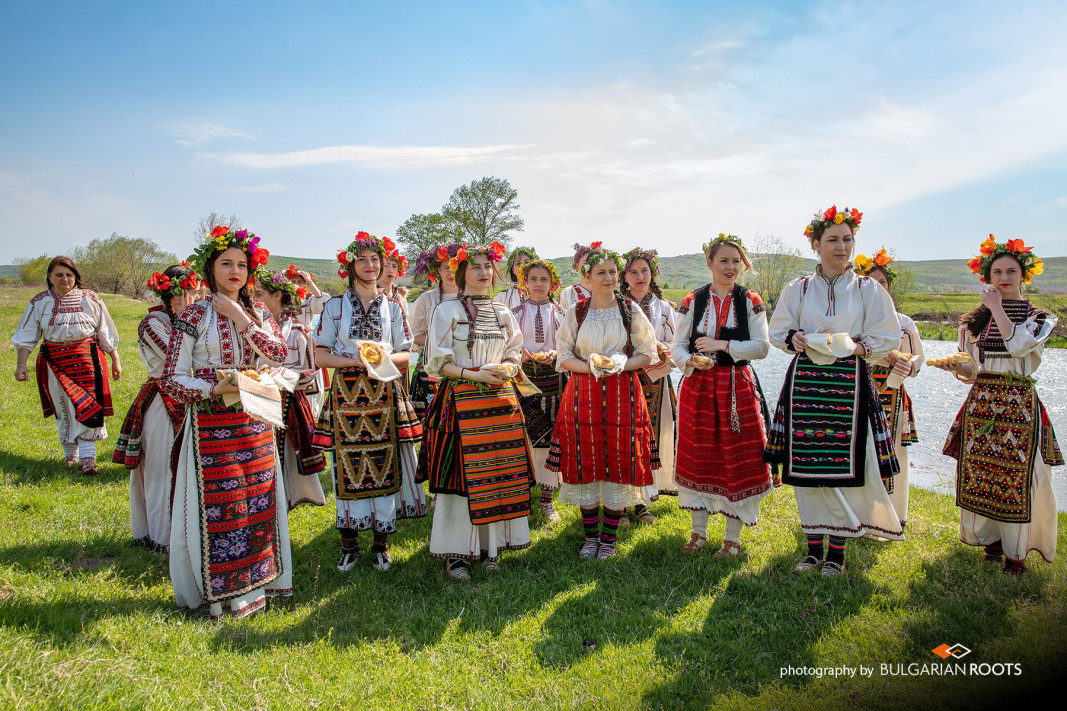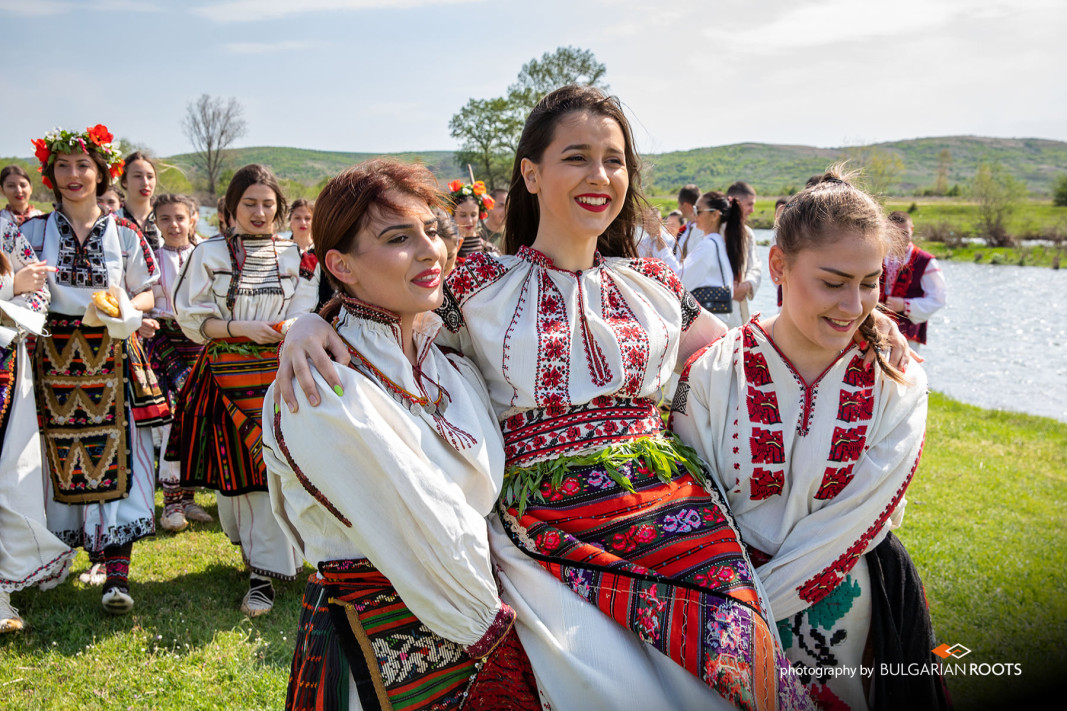
For a third year in a row, the group for authentic folklore at the "Hristo Botev 1889" community center in the town of Koinare, Pleven region, will present a reenactment of one of the most beautiful and beloved customs in northwestern regions of Bulgaria - kumichene. Just like every spring holiday from the Bulgarian folklore calendar, it is associated with a lot of laughter, songs and dances. Initiator of the idea is the local historian and collector Tanya Kirovska-Gramatikova. In Koinare, preparation for the custom, which is performed a week before Easter, starts on the day before Palm Sunday – Lazarus Saturday, when the lazarki girls make wreaths for their heads and decorations for a traditional swing. They also knead ritual bread, as a coin is placed on top of it.

"On Palm Sunday, the girls go to the Iskar River together with an older woman who is their guide and there they perform the actual ritual. Before that they go to the church, where the priest blesses them, and take willow branches with them. This is a folk custom that takes place on a church holiday, so visiting the church is not a contradiction," Tanya Kirovska-Gramatikova says.

At the river, each lass breaks off a piece of her ritual bread and decorates it with a flower from her wreath. The elderly woman arranges the pieces on a special flat board that in the past was used for washing rugs and woolen fabrics.

"The pieces of bread are not thrown in but dipped carefully, so that they end up in the water at the same time. The ritual is performed in complete silence three times and on the third time the ‘kumitsa’ is chosen – this is the girl whose piece of bread floats,” Tanya Gramatikova says about the version of the custom in Koinare. “It is believed that this girl would be the first to get married during the year. At the end, the wreaths are also thrown into the river with wishes for health and luck.”

After kumitsa is chosen, two girls carry her to the swing, singing an authentic song from the region. The unmarried lads are already waiting for them there.

One of them starts moving the swing, then everyone begins playing different games, having fun, singing songs related to love, spring and betrothal, because this is actually a custom related to betrothal and girls who are ready for marriage take part in it.

At the reenactment of the holiday this year, the young women and men in Koinare will once again be wearing magnificent over-a-century-old authentic folk costumes from the northern regions of Bulgaria. They are part of the personal collection of Tanya Kirovska-Gramatikova.

In 2022, the reenactment of the custom won a gold medal at the Folk Art Festival in Koprivshtitsa.
"I thought it would be very difficult for me to find young people to join this group; young people eager to learn folk songs and customs. But it turned out that children are very enthusiastic and put a lot of passion into what they do and it is thanks to them that everything works out in such a good way. Young people have love for Bulgarian folklore. It is important that we ignite this flame and they continue on this path."
English: Al. Markov
The photos have been kindly provided by The Live Roots of Bulgaria Foundation
At the beginning of each year, The Bulgarian city of Razlog and the surrounding villages start feverish preparations for Babinden or Midwives’ Day. The holiday is dedicated to the “grannies” who helped women give birth. Every year it is celebrated on..
The Surva festival begins with the lighting of bonfires and mummers dancing the horo chain danie around the fires on the night of January 13-14. The power and timelessness of the masquerade tradition has led UNESCO to declare it a World Heritage..
Mummers from the neighborhoods of Bulgaria's town of Blagoevgrad, the neighboring villages and guests from Petrich paraded at a carnival in the regional town, as the sounds of hundreds of bells filled the town. For yet another year, the Mummers'..

+359 2 9336 661
